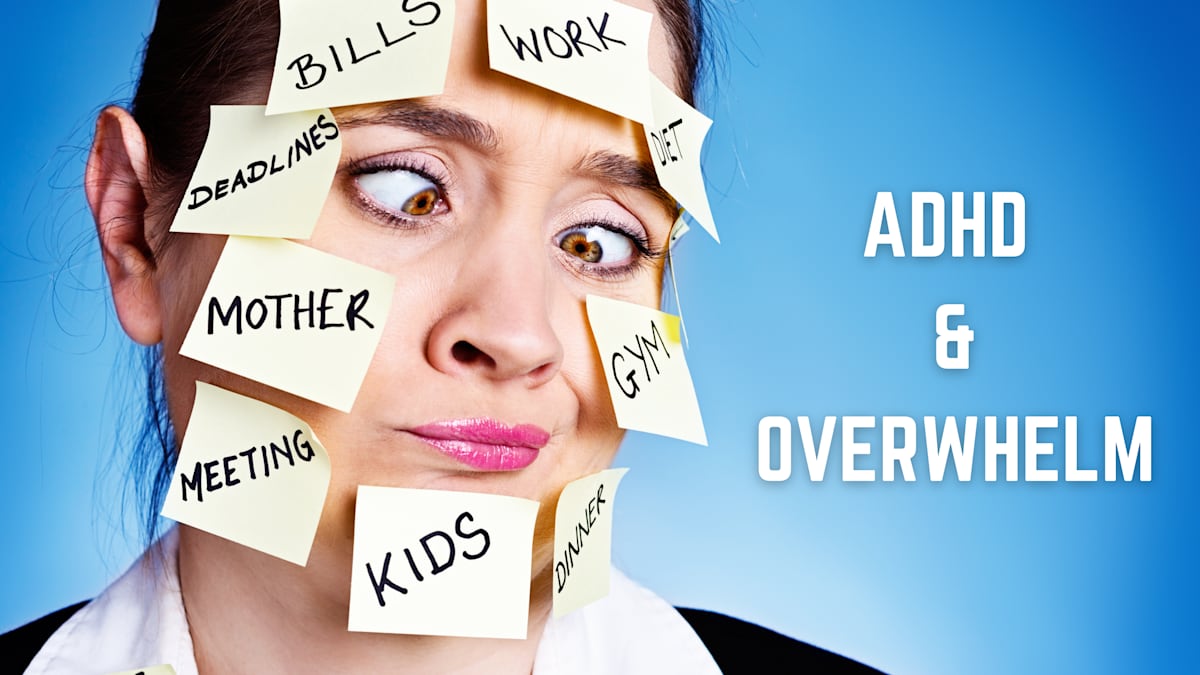I chose the theme of overwhelm this month, because I felt like I was at breaking point. I'd just let go my most high maintenance client (ironically in an attempt to feel less overwhelmed) and the result was 2 months continuing that job, whilst training the replacements (yes plural - three of them all to replace me) and trying to keep up with my other work (and failing - I had to quit another client).
I spent most of September with a tight chest, lying awake at night with stress and working through weekends and evenings late into the night. The cause of the overwhelm was simple - I'd taken on far too much and was pushing myself to hard to get everything done. The solution - I'd already done it. Lighten the load and resign from a job (or two 😬).
Feeling overwhelmed is something many people experience from time to time, but for those of us with ADHD, overwhelm can be an almost daily occurrence—leaving us feeling paralyzed, frustrated, and stuck. What exactly causes this heightened sense of overwhelm for ADHD brains, and more importantly, how can we manage it? This month I made it my mission to find out.
Why ADHD Brains Feel Overwhelm Differently
ADHD brains are wired differently, particularly in areas responsible for executive functioning, emotional regulation, and focus. When life throws multiple tasks, decisions, or responsibilities at us, those with ADHD often struggle to prioritize and organize them effectively. This can create a feedback loop of confusion and inaction, increasing stress levels.
Three key factors contribute to this heightened overwhelm:
- Executive Dysfunction: Executive functions help us plan, prioritize, and organize. ADHD brains often have difficulty breaking tasks into manageable pieces, leading to a mountain of unfinished business. Even relatively simple tasks—like paying bills or replying to emails—can pile up and feel insurmountable. Similarly, we are inclined to take on too much as we woefully underestimate the time commitment that we are taking on.
- Emotional Dysregulation: We often feel emotions more intensely and may find it hard to shift out of a negative emotional state. Feeling overwhelmed can quickly spiral into anxiety or frustration, which makes tackling tasks even harder.
- Working Memory: ADHD often impacts working memory, which is our ability to hold information in our minds temporarily while using it. When we’re trying to juggle multiple tasks or details, they slip away, and it feels like we’re constantly starting over.
This is not just about being bad at multitasking. For someone with ADHD, even thinking about the many things we should be doing can cause a paralyzing sense of overwhelm that stops us in our tracks.
How Overwhelm Affects Daily Life
Overwhelm isn’t just a fleeting feeling—it can have a real impact on day-to-day functioning:
- Procrastination: The bigger and scarier the task seems, the more likely we are to avoid it. But putting things off leads to guilt and even more overwhelm later on.
- Emotional Rollercoaster: Rejection Sensitive Dysphoria (RSD), which is common among people with ADHD, can amplify the emotional response to feeling overwhelmed. The fear of not being able to keep up can make us feel inadequate or like we’re constantly failing.
- Physical Symptoms: Overwhelm can manifest physically too. Some people may experience headaches, fatigue, or a feeling of being mentally “foggy” and drained
Embrace Progress, Not Perfection
Overwhelm might be an inevitable part of ADHD, but it doesn't have to rule your life. Remember, small wins add up. Instead of aiming for perfection, strive for progress—no matter how slow. ADHD brains are often gifted with creativity, innovation, and unique problem-solving skills. By learning how to manage overwhelm, we can tap into these strengths and live more balanced, fulfilling lives.
